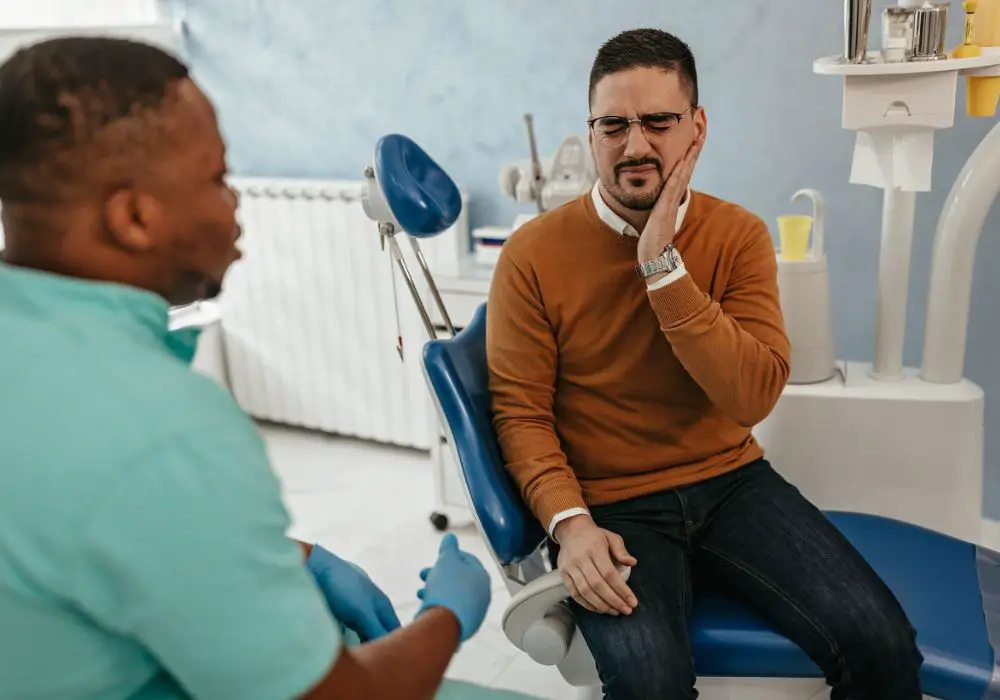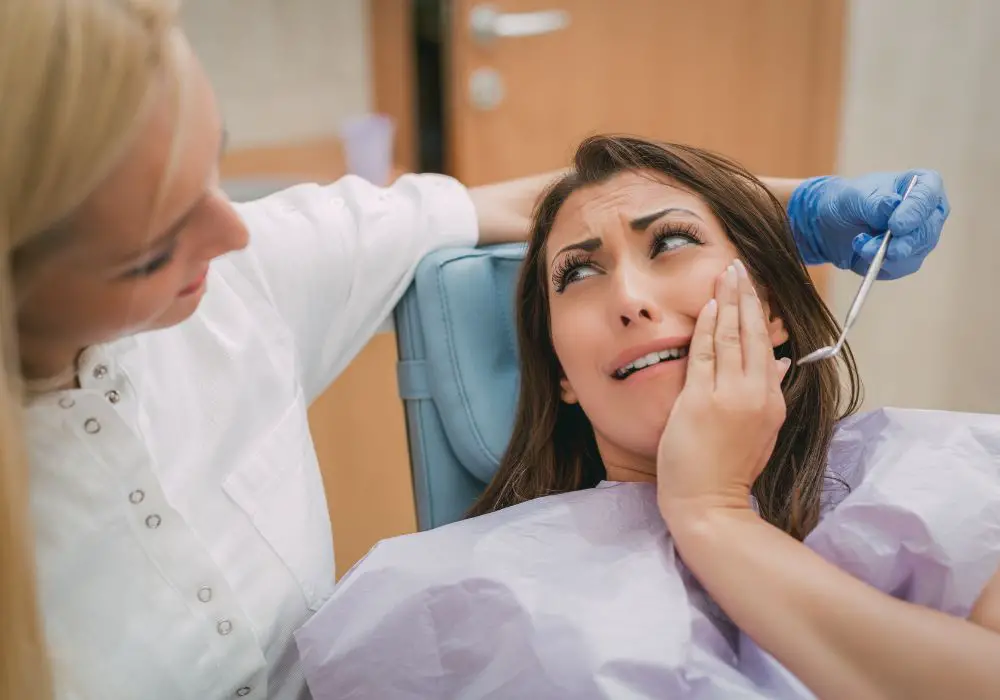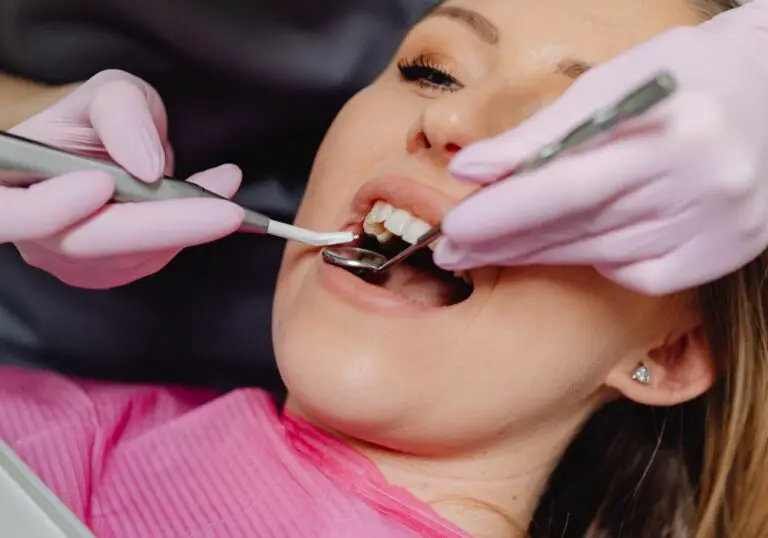Toothache is an extremely common dental complaint. It can vary from mild discomfort to severe throbbing pain that disrupts daily life. Self-medicating with over-the-counter painkillers like ibuprofen, acetaminophen, aspirin often provides relief from minor toothaches. However, recurrent or persistent toothache that is not alleviated even after taking painkillers could indicate an underlying dental problem that needs professional treatment.
This article explores the various causes of toothache that does not respond well to painkillers. It provides tips on managing severe tooth pain until you can see a dentist. It also stresses the importance of prompt dental consultation and treatment for quick relief from stubborn toothaches.
Causes of toothache not relieved by painkillers

Toothache has a wide range of possible causes including dental decay, cracked teeth, gum disease, sinus infection, wisdom tooth eruption, bruxism, etc. The severity can range from mild tenderness to severe, shooting pain. Over-the-counter oral pain relievers are usually helpful in reducing minor toothache. But, they may not work well for certain kinds of severe, chronic tooth pain.
Dental caries
Tooth decay or dental caries is a common cause of toothache. It develops when plaque bacteria metabolize sugars and release acids that erode the enamel and underlying dentin. This causes sensitivity and mild, sharp pain on eating or drinking something hot, cold or sweet.
However, deep dental caries that affect the inner pulp tissue can trigger severe, spontaneous pain. The exposed nerve pulp becomes inflamed and infected causing throbbing, intense toothache that keeps recurring.Painkillers cannot treat the infected pulp tissue. Root canal treatment or tooth extraction is required to address the deep decay.
Pulpitis
Pulpitis refers to inflammation of the pulp tissue inside the tooth. The pulp contains sensitive nerves and blood vessels. It can become inflamed and irritated due to deep cavities, tooth fractures, trauma from a blow or accident, cracked tooth etc. This results in severe pain ranging from mild, dull ache to intense, stabbing pain.
Painkillers and anti-inflammatory medication can provide temporary relief but cannot treat the inflamed pulp itself. You need immediate dental treatment like pulp capping, root canal therapy or tooth extraction depending on severity of the pulpitis.
Dental abscess
A dental abscess occurs when pus builds up inside the pulp or around the root of the affected tooth due to a bacterial infection. It causes red, severely painful swelling on the gums near the tooth. Dental abscess pain ranges from throbbing, gnawing pain to sharp, shooting pain radiating to ear, jaw and neck.
Painkillers alone provide only short-term relief from an abscess toothache. Draining the pus and treating the infection with root canal therapy or tooth extraction is necessary to permanently address the abscess.
Pericoronitis
This refers to inflammation of gums around a wisdom tooth usually due to food, bacteria and debris trapped under the flap covering the incoming wisdom tooth. It causes severe pain and swelling. Over-the-counter pain meds only temporarily relieve this discomfort. You need antibiotics and removal of food debris by a dentist to treat pericoronitis.
Periodontitis
Periodontitis is inflammation and infection of tissues supporting the teeth including the gums, bone and periodontal ligament due to poor oral hygiene. It can cause teeth to loosen and severe, dull ache with worsens with chewing. Painkillers do not treat the underlying gum infection. You need professional dental cleaning and sometimes gum surgery.
Cracked tooth
A cracked tooth usually results from trauma, grinding teeth or deteriorating dental fillings. It can allow bacteria to infect the inner pulp causing inflammation and severe pain with chewing or biting. Cracked tooth pain will not subside completely with just painkillers. You need dental treatment like root canal therapy or crown placement.
Referred pain
Sometimes the source of tooth pain may be outside the teeth in surrounding areas like ears, sinuses, jaws, neck etc. But the pain gets transmitted through nerve pathways and is incorrectly perceived as coming from the teeth.Referred dental pain does not respond well to painkillers since they do not treat the actual cause. The underlying condition needs diagnosis and treatment.
When to see a dentist

You should consult your dentist immediately if –
- The toothache is severe, constant and not relieved even slightly by over-the-counter painkillers
- It worsens at night or with eating/chewing
- You have fever, chills or headache along with the toothache
- You notice swelling, bumps, redness near the painful tooth
- You have other symptoms like foul breath, foul taste, damaged teeth
The dentist will examine the oral cavity and may get xrays or conduct tapping or temperature sensitivity tests to determine the exact cause of tooth pain. Based on their diagnosis, the dentist may recommend:
- Dental fillings or crowns for treating cavities
- Root canal treatment for infected dental pulp
- Extraction if the tooth is severely damaged
- Antibiotics and drainage for dental abscess
- Debridement or periodontal surgery for gum infection
- Occlusal splint for bruxism and cracked teeth
- Referral to a dental specialist like endodontist, prosthodontist etc for further treatment
Do not delay dental consultation if OTC pain meds are not relieving your toothache. Underlying dental problems can worsen and spread infection to other teeth, gums, bones or even nearby facial structures and spaces. Prompt professional treatment is key for complete relief from persistent toothaches.
Tips to manage toothache until you can visit a dentist
It takes time to get an appointment with an emergency dentist when you have severe tooth pain. Here are some self-care tips to temporarily alleviate intense toothache until dental treatment is possible:
Take OTC oral painkillers
Anti-inflammatory painkillers like ibuprofen and naproxen sodium help reduce inflammation affecting the dental nerves. Acetaminophen blocks pain signals to the brain. Take these medications at the correct dosages and intervals specified on the label for temporary pain relief.
Rinse with warm salt water
Salt water rinses have an osmotic effect that helps draw out fluid from swollen gums and inhibits growth of bacteria. Swish vigorously with warm salt water 2-3 times a day to get some relief from toothache.
Use cold compresses
Applying an ice pack or cold compress to outside of the cheek near the painful tooth provides numbing effect that gives temporary pain relief. Do this for 10-15 minutes a few times a day.
Avoid temperature triggers
Avoid exposing the sensitive tooth to sudden changes in temperature by not eating hot or cold foods. Also sip warm beverages slowly.
Maintain oral hygiene
Gently brush twice daily and floss once daily to clear food debris and plaque from around the painful tooth. Rinse your mouth with an antibacterial mouthwash.
Avoid chewing on painful side
Chew food carefully and only use the opposite side of the mouth to minimize pain until you see a dentist.
Take prescribed antibiotics
If the dentist has prescribed an antibiotic after diagnosing an infection, take the medication exactly as directed to treat the bacterial infection.
Try clove oil
Clove oil contains eugenol that has mild topical anesthetic properties. Applying a small amount to the painful tooth using a cotton swab can provide temporary relief.
Use dental wax
Applying orthodontic dental wax to a cracked or fractured tooth surface can provide a soothing protective coating for some pain relief.
Manage stress
Anxiety and stress can make you focus more on the tooth pain. Use relaxation techniques and do activities that distract you from the toothache.
See a dentist right away if the pain becomes severe and unbearable despite trying these palliative remedies at home.
Types of oral pain medications

There are several types of oral OTC medications that can provide temporary relief from toothache pain before you get dental treatment.
Acetaminophen
Acetaminophen (Tylenol) relieves pain by elevating the body’s internal pain threshold. It is not an anti-inflammatory drug. The recommended dose is 325-650 mg every 4 to 6 hours as needed, with a maximum of 4000 mg/day.
NSAIDs
Non-steroidal anti-inflammatory drugs like ibuprofen, naproxen and aspirin reduce inflammation and pain.
- Ibuprofen – Take 200-400 mg every 4 to 6 hours as required, up to max of 1200 mg/day
- Naproxen sodium – Take 220 mg every 8 to 12 hours as needed
- Aspirin – Take 325 to 650 mg every 4 hours as needed
NSAIDs can irritate the stomach lining and cause gastric side effects if used long-term.
Opiates
Narcotic opiates like codeine, oxycodone, hydrocodone require prescription. They are stronger painkillers but can cause dependence if used beyond a week.
Benzodiazepines
Medications like clonazepam and diazepam reduce dental anxiety and muscle tension causing referred pain. But they require monitoring by a dentist.
Always consult a dentist before taking any medication for tooth pain. Do not exceed dosage limits or use for longer than recommended duration without medical guidance.
Common side effects of oral pain relievers
| Medication | Potential adverse effects |
|---|---|
| Ibuprofen, naproxen | Heartburn, stomach ulcer and bleeding, kidney dysfunction |
| Acetaminophen | Liver toxicity at high doses |
| Aspirin | Gastric irritation, ulcers, prolonged bleeding |
| Narcotics | Drowsiness, nausea, vomiting, constipation, addiction |
| Benzodiazepines | Drowsiness, dizziness, confusion |
Do not take more than one type of oral painkiller together without asking your doctor. Combining certain medications can increase the risk of adverse effects. Inform your dentist about any other medicines you take to avoid negative interactions.
Safe use of over-the-counter pain relievers
- Take medication only as directed by the dentist or according to the product label instructions
- Do not exceed the recommended dosages and maximum daily limits
- Avoid taking on empty stomach to prevent gastric irritation
- Do not use for more than a few days for temporary relief
- Discontinue if you develop any side effects
- Consult dentist before using if you have other medical conditions or take other medicines
Using OTC oral pain relievers incorrectly can lead to adverse effects, drug interactions and even overdose. Follow guidelines for safe usage until dental treatment is possible.
When to call a doctor vs going to ER

Along with persistent, severe toothache, you need to consult a physician or go to the ER immediately if you experience:
Call your physician if
- Fever above 101°F
- Fatigue, body ache
- Swollen lymph nodes
- Rash on skin
Go to the ER if
- Difficulty swallowing or breathing
- Swelling spreading to neck and throat
- Severe headache, stiff neck
- Facial numbness or drooping
- Chest pain with toothache
The above symptoms can indicate spreading dental infection, abscess obstruction of airway, allergic reaction or other medical emergency requiring prompt care to prevent life-threatening complications.
FAQs about toothaches not relieved by painkillers
Q1. Why does tooth pain intensify at night?
Toothache often worsens at night due to these reasons:
- Lying down increases blood flow and pressure on the inflamed tooth
- Nighttime clenching or grinding can damage cracked tooth more
- Temperature changes when sleeping can cause sensitivity
See your dentist if toothache disrupts sleep or is severe upon lying down.
Q2. When does toothache require antibiotics?
Antibiotics are prescribed if the dentist diagnoses:
- Bacterial infection like abscess, infected pulp or periodontal disease
- Spreading facial swelling and fever indicating infection
- Systemic signs like fever and chills along with toothache
Do not take leftover antibiotics. Only take prescribed course exactly as directed by the dentist.
Q3. Should I get a temporary filling while waiting to see a dentist?
Do not attempt temporary DIY fillings using chewing gum, candle wax, cement etc. They can worsen the cavity and cause more damage. See your dentist for sedative dressing or proper dental filling.
Q4. Can I remove the tooth myself if the pain is very severe?
Never attempt dental extraction yourself. It can lead to severe bleeding, jaw fracture, nerve damage and other complications. Visit an emergency dentist promptly for appropriate treatment.
Q5. Why does numbness not work at the dentist for my toothache?
The dentist may need to administer more anesthetic if you still feel pain during the procedure. Inform them immediately if the toothache persists after the area is numb. The effect also wears off over a few hours.
Warning signs requiring urgent medical care
Seek emergency medical care promptly if you experience any of the below alarming symptoms along with severe toothache:
- Difficulty breathing or swallowing
- Fever above 103°F
- Facial swelling, neck stiffness
- Rash, hives, swelling of lips/throat
- Chest pain, palpitations
- Fatigue, loss of consciousness
- Numbness/drooping on one side of face
- Severe headache, confusion, seizures
These red flags can indicate a medical emergency like abscess obstruction of airway, spreading infection, heart problems, allergic reaction or stroke. Prompt evaluation and treatment is vital to prevent potentially life-threatening complications.
The takeaway
Toothache that is not relieved by over-the-counter pain medications usually indicates an underlying dental issue needs proper diagnosis and treatment. Do not dismiss persistent, severe tooth pain as something you have to just “bear with”. Try some self-care remedies temporarily for symptom relief. But make sure to consult your dentist promptly to identify and definitively resolve the cause of unbearable toothaches. With timely dental intervention, you can bid farewell to that throbbing tooth pain and smile confidently again!







